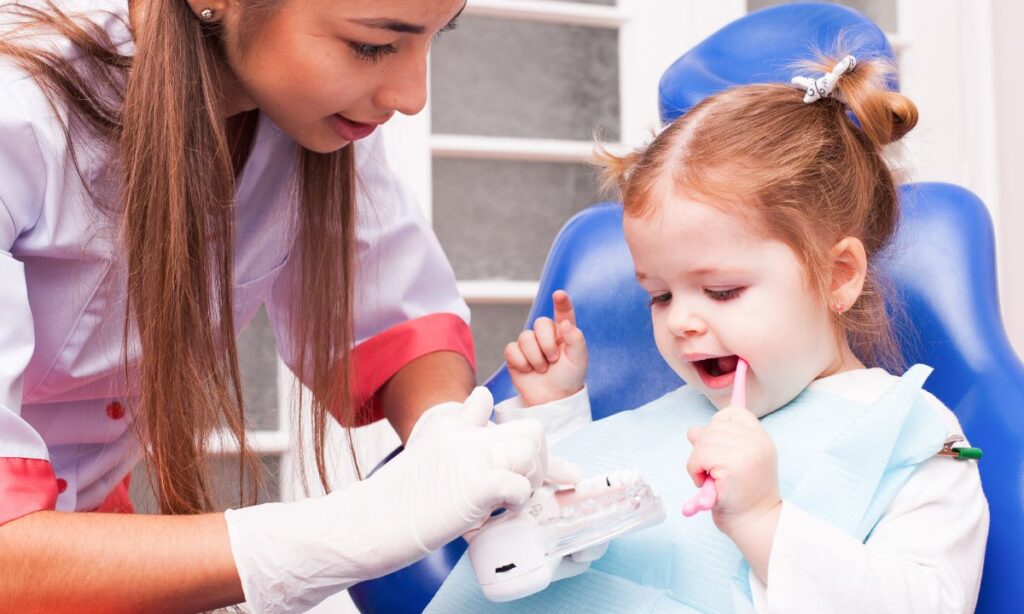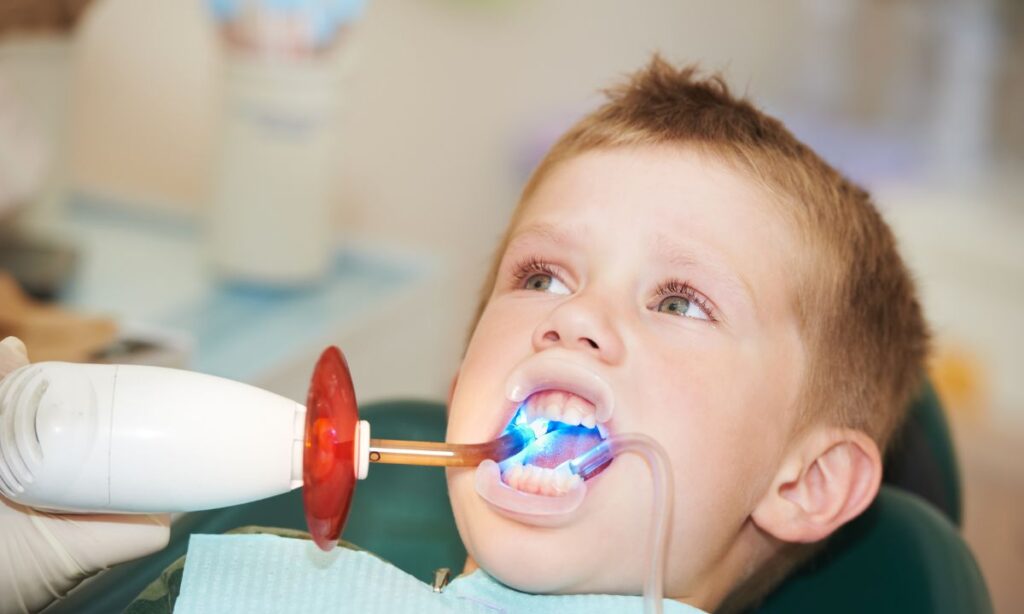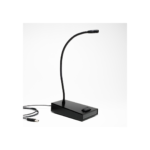As a parent or caregivers, we all want the best for our children. From providing home-cooked meals to making sure they get enough sleep, promoting healthy habits starts from an early age. Dental care is often overlooked in this list of priorities but is crucial for long-term oral health and overall well-being.
Prevention is key when it comes to dental care for children. Starting good oral hygiene habits early on can help prevent common dental problems like cavities and gum disease.
Here are some tips to promote healthy oral habits in your child
Start with regular brushing

Children should start brushing their teeth as soon as their first tooth appears, using just water and a soft-bristled brush.
As they grow older, add fluoride toothpaste into the equation, ensuring you monitor how much toothpaste goes on the brush head (for pea-sized amounts). Regular brushing twice daily gets rid of harmful bacteria that can cause decay.
Fluoride treatments
Besides regular brushing, fluoride treatments can help strengthen teeth and prevent cavities. Fluoride is a mineral that helps repair or prevent tooth enamel breakdown.
It’s found in many public water systems, but sometimes additional supplements are needed (for example, in areas with non-fluoridated water sources). Your dentist can guide whether your child should receive fluoride treatment.
Dental sealants

Dental sealants are a preventive measure used to protect teeth from cavities. These thin, plastic coatings are applied to the chewing surfaces of the back teeth, which are the most susceptible to decay.
Sealants create a barrier that prevents food particles and bacteria from getting stuck in the grooves and pits of the teeth, making it easier to clean and maintain good oral hygiene.
Sealants are typically applied to children’s teeth as soon as they come in, but they can also be used on adult teeth if they are prone to decay.
This painless and quick procedure can help protect your teeth and save you from costly dental treatments down the road.
Regular checkups
Lastly, regular dental appointments for professional cleanings and exams will ensure that any issues are caught early before they become bigger problems requiring corrective measures such as fillings or extractions.
Your dentist can also advise on encouraging healthy habits, answer any questions you have about your child’s oral health, and offer personalized recommendations.
Promoting healthy dental care habits for children requires a comprehensive approach involving home care and professional dental services.
At Leander Dental Care, we provide top-quality dental care services for individuals of all ages – from pediatric dentistry to cosmetic procedures and orthodontics.
Whether your little one is just starting with their first tooth or they’re due for their routine cleaning and checkup appointment, our team is here to support you every step of the way.
Conclusion
Promoting good oral hygiene habits in children goes beyond brushing twice daily; it includes visits to the dentist regularly, who offer fluoride treatments and sealants when necessary.
As parents/caregivers, we need to prioritize this aspect of our children’s health because, ultimately, prevention means more than cure.
Emphasizing these tips at an early age willhelp ensure that your child maintains a healthy smile throughout their lifetime. Visit https://dentistleandertx.com to learn more about how they can support you in promoting good dental care habits for your children.
FAQ
Q: When should I start taking care of my child’s teeth?
A: Good dental care should begin as soon as your child’s first tooth appears. This typically occurs around 6-8 months of age. Begin by wiping their teeth and gums with a soft, damp cloth or gauze pad after feedings.
Q: How often should my child brush their teeth?
A: Children should brush their teeth twice a day for two minutes each time. Encourage your child to brush their teeth in the morning and before bedtime.
Q: What type of toothpaste should my child use?
A: Children under the age of three should use a small amount of fluoride-free toothpaste, about the size of a grain of rice. Children over the age of three can use a pea-sized amount of fluoride toothpaste.
Q: How often should my child visit the dentist?
A: Your child should visit the dentist every six months for a check-up and cleaning. This will help prevent dental problems and ensure that any issues are caught early.
Learn More
Men’s Health Benefits Of Amazing Fruit
Eat Kiwi Fruit Everyday For Good Health







